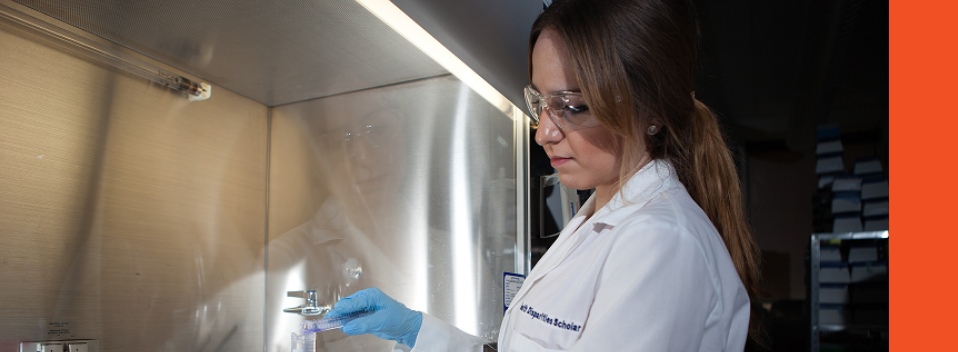
Health & Biomedical Sciences Faculty Publications
Document Type
Article
Publication Date
11-2023
Abstract
The survival of patients with glioblastoma multiforme (GBM), the most common and invasive form of malignant brain tumors, remains poor despite advances in current treatment methods including surgery, radiotherapy, and chemotherapy. Minocycline is a semi-synthetic tetracycline derivative that has been widely used as an antibiotic and more recently, it has been utilized as an antiangiogenic factor to inhibit tumorigenesis. The objective of this study was to investigate the utilization of electrospraying process to fabricate minocycline-loaded poly(lactic-co-glycolic acid) (PLGA) microparticles with high drug loading and loading efficiency and to evaluate their ability to induce cell toxicity in human glioblastoma (i.e., U87-MG) cells. The results from this study demonstrated that solvent mixture of dicholoromethane (DCM) and methanol is the optimal solvent combination for minocycline and larger amount of methanol (i.e., 70:30) resulted in a higher drug loading. All three solvent ratios of DCM:methanol tested produced microparticles that were both spherical and smooth, all in the micron size range. The electrosprayed microparticles were able to elicit a cytotoxic response in U87-MG glioblastoma cells at a lower concentration of drug compared to the free drug. This work provides proof of concept to the hypothesis that electrosprayed minocycline-loaded PLGA microparticles can be a promising agent for the treatment of GBM and could have potential application for cancer therapies.
Recommended Citation
Arriaga, Marco A., Juan A. Amieva Jr, Jaqueline Quintanilla, Angela Jimenez, Julio Ledezma, Silverio Lopez, Karen S. Martirosyan, and Sue Anne Chew. "The application of electrosprayed minocycline‐loaded PLGA microparticles for the treatment of glioblastoma." Biotechnology and bioengineering 120, no. 11 (2023): 3409-3422. https://doi.org/10.1002/bit.28527
Publication Title
Biotechnology and bioengineering
DOI
https://doi.org/10.1002/bit.28527


Comments
© 2023 Wiley Periodicals LLC.
https://onlinelibrary.wiley.com/share/FHNJIQFDFQV2HIKRQPAZ?target=10.1002/bit.28527